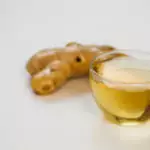PCOS test is based on the Rotterdam criteria for diagnosing PCOS.

Polycystic Ovarian Syndrome

Women suffering from PCOD tend to have a tough time going through hormonal imbalances, insulin resistance, increase/fluctuation in androgen and insulin levels, obesity etc.
In allopathic medicine, oral contraceptives, progestins and medicines that reduce male hormones remain the standard therapies, but these bring a host of side effects with them. Ayurvedic kitchen medicines, used safely for centuries, can provide a better option for managing PCOS symptoms. Ayurvedic herbs, which should always be taken under the care of a qualified medical practitioner, can also produce amazing results in those suffering from PCOD for a long time.
In Ayurveda, PCOD can be correlated with hypomenorrhea (extremely light menstrual blood flow), oligomenorrhea (infrequent menstrual periods), heavy periods and symptoms of high male hormones, like cystic acne and excess facial and body hair. Modern management of PCOS focusses on lowering insulin resistance (a common condition in PCOS) and using medicines to control elevated male hormone levels. Women who are overweight are also advised to lose weight.
PCOS is a lifestyle disease; improper diet, sedentary lifestyle and not actively managing day-to-day stress are all factors that make it worse. These can be addressed very well with the use of simple Ayurvedic kitchen medicines to begin with. More complex PCOS cases can be addressed with the following ayurvedic remedies, as prescribed by an Ayurvedic practitioner.
The principle behind Ayurvedic treatment is to normalize metabolism, balance the hormones and regulate the menstrual system.
Triphala Kwatha, Chandraprabha Vati and Manibhadra Choorna help to clear the obstruction of fluids in the body and normalize the srotas or vessels that carry the flow of bodily fluids. Triphala and Guggulu especially are very useful for reducing excess weight.
Powder of A. racemosus (Shatavari) brings balance and strength to the menstrual system and it helps to regulate menstrual cycles. It is used in females who get their menstruation but are not able to conceive. Hence, the use of Shatavari enhances the chances of conception.
Powder of seeds of P. graveloens, oil of Krishna Jeeraka (Nigella sativa) and oil of Sahachara (Barleria prionits) are helpful in removing harmful cysts on ovaries and stimulate the follicular maturity.
Ocimum tenuiflorum (Holy Basil): It has got excellent anti-androgenic properties for decreasing the excess male hormone production. It is also a promising remedy for the management of obesity.
Actaea racemosa (Black Cohosh): It has the ability to induce ovulation in women with PCOS. It is also renowned as a women’s remedy associated with complications related to childbearing and menstrual cycles.
Areca catechu (Betel Palm): It helps maintain the healthy production of female hormones and relieves the congestion of the blood vessels in the abdominal area. It also helps in maintaining a healthy female reproductive system.
Galega officinalisi (Goats Rue): It is the natural source of guanidine which is an anti-diabetic drug from biguanides class. Therefore, it can be used as a substitute to Metformin which also belongs to biguanide class and is commonly prescribed for PCOS.
Some other important herbs are Ashoka (Saraka Indica), Manjistha (Rubia Cordifolia), Shalmali (Bombax Malbaricum), Lodhra (Symplocos Racemosus), Rasanjan (Barberis Chitra), Sariva (Hemidesmus Indicus), Gokshur (Tribulus Teristris), Punarnava (Boerrhavia Diffusa), Nagkeshar (Mesua Ferea), Chandan (Santalum Albam), Amalaki (Embelica Officinalis), Haridra (Curcuma Longa), Gudmar (Gymnema Sylvestre), Guduchi (Tinospora Cordifolia), Methi (Trigonella Foenum Gaecum), Vijaysar (Pterocarpus Marsupium) that can help in managing PCOS when it comes to Ayurvedic treatment.
The powders of these Ayurvedic drugs are quite beneficial in bringing balance and strength to the menstrual system and regulating menstrual cycles.
PCOD can be reversed using a holistic approach. Learn how to reverse PCOD naturally with Sepalika’s 5-Petal PCOD Programme. Our personalised protocols using a holistic approach help treat PCOD at the root through diet, nutrition, exercise, Ayurveda and magnet acutherapy. What’s more, expert consults via phone and WhatsApp help you always stay on track in your journey to overcome PCOD.
References: